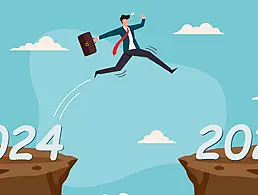This week’s interview is with Professor William Dutton (pictured), director of the Oxford Internet Institute.
What has your research into the internet shown?
What we’ve learned is that the internet is an experiential technology, by which I mean if you can get people to experience it, then they’ll ‘get’ it; they’ll figure out its value and how to use it.
That kind of experience you can explain to people but until they use [the internet] they don’t understand how powerful it is. If you can crack that problem, you will be on the way to making major inroads on the access problem.
Is the digital divide real and should it be a concern?
I’d argue this has to remain a central concern of people involved in internet development in major countries. In most countries [internet access] has actually plateaued at the level that PC penetration is anchored. Of people of school age, almost everyone in Britain uses the internet but among people of retirement age, only about 30pc use the internet anywhere.
What are the causes for the digital divide?
Much of the divide is not explained by social or geographical limitations but by choice — people who choose not to use it. Most people who decide not to use it do not have a basis for their choice.
Could digital TV address this problem?
There’s a great deal of hope placed on digital TV as a solution to the digital divide but I’m sceptical about that. I think the people who will use digital TV as a complement to the internet are the same people who are more sophisticated about using a PC. It won’t be the people who don’t have access.
What’s your assessment of the internet’s impact to date?
I’m disappointed the internet’s not living up to its potential. It’s becoming a passive consumer medium, not an active participating one. A relatively small number of people post photos but there are all sorts of indicators that people are not using it as a way of producing and sharing information for others. They’re downloading music rather than being more creative.
What about Web 2.0, which is supposed to be about making the internet more of a collaborative thing?
I think it’s exaggerated. It’s possible that people are developing applications that are more interactive but it’s easy to exaggerate the proportion of the public that are generating content for others on the web.
By Gordon Smith




